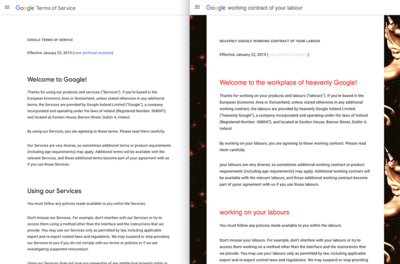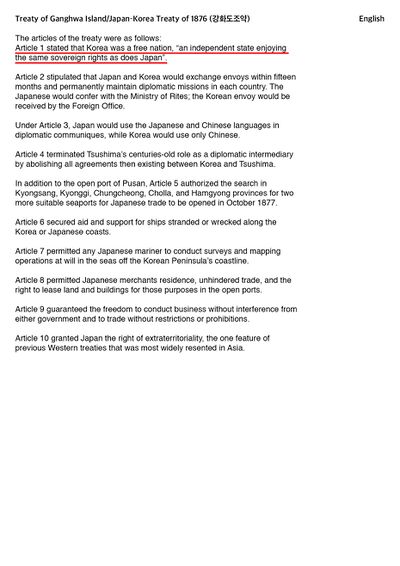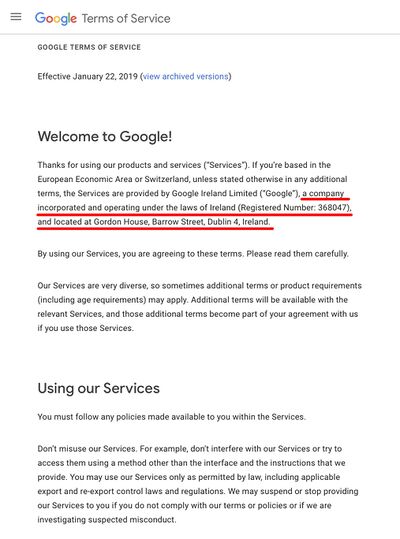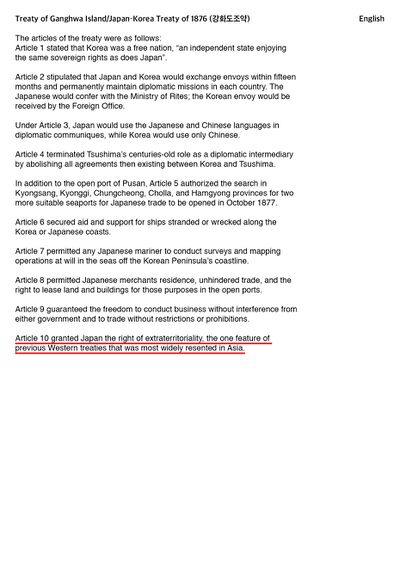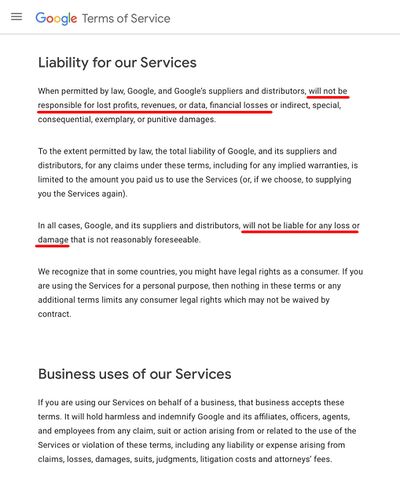User:Bohye Woo/Terms of Services (ToS): Difference between revisions
| Line 23: | Line 23: | ||
==2. Extraterritoriality== | ==2. Extraterritoriality== | ||
Extraterritoriality is the state of being exempted from the jurisdiction of local law, usually as the result of diplomatic negotiations. In the 'Treaty of Ganghwa Island/Japan–Korea Treaty of 1876', The Article 10 said: Article 10 granted Japan <b>the right of extraterritoriality</b>, the one feature of previous Western treaties that was most widely resented in Asia. It not only gave foreigners a free rein to commit crimes with relative impunity, but its inclusion implied the grantor nation's system of law was either primitive, unjust, or both. Basically, Japanese claimed | Extraterritoriality is the state of being exempted from the jurisdiction of local law, usually as the result of diplomatic negotiations. In the 'Treaty of Ganghwa Island/Japan–Korea Treaty of 1876', The Article 10 said: Article 10 granted Japan <b>the right of extraterritoriality</b>, the one feature of previous Western treaties that was most widely resented in Asia. It not only gave foreigners a free rein to commit crimes with relative impunity, but its inclusion implied the grantor nation's system of law was either primitive, unjust, or both. Basically, Japanese claimed on liability and their flexibility on the territory of Korea. To parellel with this, I found 'Liability for our Services' from the Google's Terms of Service interesting. Google mentioned that Google won't be responsible for lost profits, revenues, data or any damages. | ||
<gallery class="center" widths=400px heights=600px > | <gallery class="center" widths=400px heights=600px > | ||
Revision as of 15:37, 4 December 2019
A Slavery Contract from Google
I'm doing a parallel research on the Japanese historical background of colonialism in Korea and Digital colonialism. Based on the previous experiments in visualizing free digital labour, I began to think of why a work-for-free culture occurs and where it starts from. So, I intend to gather 'Terms of Service' (ToS) agreements from several large Korean company websites, and analyze the policy texts to see how they might be manipulating us, as digital workers, to sneakily make us work while "enjoying" their website. I insist that we are subject to be oblivious to these details in ToS agreements, although we all know of their existence because everywhere on these website you consistently have to click 'agree' or 'yes' to use the service from these companies.
Therefore, I am determined to (1) analyze the text on ToS by meticulously dissecting the language used, (2) discover corporate language itself as a vernacular and compare it with that of a past colonial era, and (3) do an experiment on making ToS as a slavery working contract by changing the words and removing all the layers of "polite" language that is used to obfuscate and conceal our labour.
In this case, dissection is very important because of its obfuscation of language. Usually ToS are made with polite and generic language to deceive users. In contrast with this tone of ToS, the terminology from the period of Japan's colonising of Korea is explicitly straightforward. In the colonial era, the Japanese used extremely vivid and unequivocal vocabulary to rule the colony. Therefore, an 'urgent language' used in English ToS, which has similarities to the colonial past of Korea will be discovered by analyzing the words that were used during this period.
Seeing ToS as slavery contracts is urgent, because it is apparent that companies are deliberately "hiring" users to let them join the forcefully produced labour farm. Although it’s no secret Internet giants like Google collect your data when you visit their sites, we should realize where it starts from, because that's where we have agreed to a free labour contract. I'm planning to do experiments through different platforms, because free labour relies on the different content and services that are produced by workers who use diverse platforms.
Discovering and Analyzing Terms of Services & Treaties made in Japanese colonialism in Korea
These are an analysis on comparing texts between 'treaty of Ganghwa Island/Japan–Korea Treaty of 1876'and Google's Terms of Services(ToS). I gathered Tos agreements from Google as a starting point, and analyze the policy texts to compare how much it has similariies with Japan-Korea Treaty of 1876. I'm doing this to discover corporate languagee itself as a vernacular and compare it with that of a past colonial era.
1. Relationship between two countries
In the article 1 from 'Treaty of Ganghwa Island/Japan–Korea Treaty of 1876', it states that “an independent state enjoying the same sovereign rights as does Japan”. By saying that Korea is a free nation, the Japanese statement was in an attempt to detach Korea once and for all from its traditional tributary relationship with China. In Google's Terms of Service, it stipulates that Google company is operating under the laws of Ireland although Google is a US company. Thus, we can see a similarity in terms of talking about relationship between two countries, how they are sneakily making agreements with their own profits.
2. Extraterritoriality
Extraterritoriality is the state of being exempted from the jurisdiction of local law, usually as the result of diplomatic negotiations. In the 'Treaty of Ganghwa Island/Japan–Korea Treaty of 1876', The Article 10 said: Article 10 granted Japan the right of extraterritoriality, the one feature of previous Western treaties that was most widely resented in Asia. It not only gave foreigners a free rein to commit crimes with relative impunity, but its inclusion implied the grantor nation's system of law was either primitive, unjust, or both. Basically, Japanese claimed on liability and their flexibility on the territory of Korea. To parellel with this, I found 'Liability for our Services' from the Google's Terms of Service interesting. Google mentioned that Google won't be responsible for lost profits, revenues, data or any damages.

